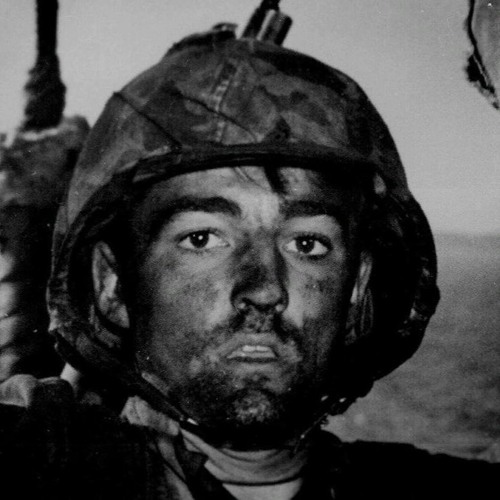Three quotes about war

Also, the goyim hang a little white cloth with a star in the front window, in honor of themselves and their boys away in the service- a blue star if the son is living, a gold star if he is dead. A Gold Star Mom, says Ralph Edwards, solemnly introducing a contestant on Truth or Consequences, who in just two minutes is going to get a bottle of seltzer squirted at her snatch, followed by a brand-new refrigerator for her kitchen . . . A Gold Star Mom is what my Aunt Clara upstairs is too, except here is the difference- she has no gold star in her window, for a dead son doesn’t leave her feeling proud or noble, or feeling anything, for that matter. It seems instead to have turned her, in my father’s words, into a nervous case for life. Not a day has passed since Heshie was killed in the Normandy invasion that Aunt Clara has not spent most of it in bed, and sobbing so badly that Doctor Izzie has sometimes to come and give her a shot to calm her . . .
Philip Roth
I will come to a time in my backwards trip when November eleventh, accidentally my birthday, was a sacred day called Armistice Day. When I was a boy, and when Dwayne Hoover was a boy, all the people of all the nations which had fought in the First World War were silent during the eleventh minute of the eleventh hour of Armistice Day, which was the eleventh day of the eleventh month.
It was during that minute in nineteen hundred and eighteen, that millions upon millions of human beings stopped butchering one another. I have talked to old men who were on battlefields during that minute. They have told me in one way or another that the sudden silence was the Voice of God. So we still have among us some men who can remember when God spoke clearly to mankind.
Kurt Vonnegut
They had put us into ordinary third-class carriages with wooden seats, and many of the men were badly wounded and had only got out of bed for the first time that morning. Before long, what with the heat and the jolting, half of them were in a state of collapse and several vomited on the floor. The hospital orderly threaded his way among the corpse-like forms that sprawled everywhere, carrying a large goatskin bottle full of water which he squirted into this mouth or that. It was beastly water; I remember the taste of it still. We got into Tarragona as the sun was getting low. The line runs along the shore a stone's throw from the sea. As our train drew into the station a troop-train full of men from the International Column was drawing out, and a knot of people on the bridge were waving to them. It was a very long train, packed to bursting-point with men, with field-guns lashed on the open trucks and more men clustering round the guns. I remember with peculiar vividness the spectacle of that train passing in the yellow evening light; window after window full of dark, smiling faces, the long tilted barrels of the guns, the scarlet scarves fluttering--all this gliding slowly past us against a turquoise-coloured sea. '_Extranjeros_--foreigners,' said someone. 'They're Italians.' Obviously they were Italians. No other people could have grouped themselves so picturesquely or returned the salutes of the crowd with so much grace--a grace that was none the less because about half the men on the train were drinking out of up-ended wine bottles. We heard afterwards that these were some of the troops who won the great victory at Guadalajara in March; they had been on leave and were being transferred to the Aragón front. Most of them, I am afraid, were killed at Huesca only a few weeks later. The men who were well enough to stand had moved across the carriage to cheer the Italians as they went past. A crutch waved out of the window; bandaged forearms made the Red Salute. It was like an allegorical picture of war; the trainload of fresh men gliding proudly up the line, the maimed men sliding slowly down, and all the while the guns on the open trucks making one's heart leap as guns always do, and reviving that pernicious feeling, so difficult to get rid of, that war is glorious after all.
George Orwell


